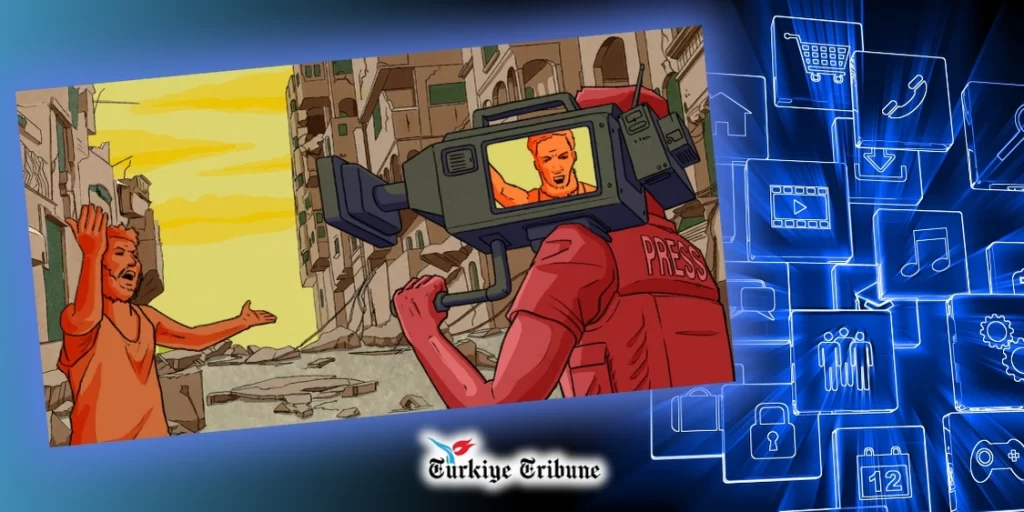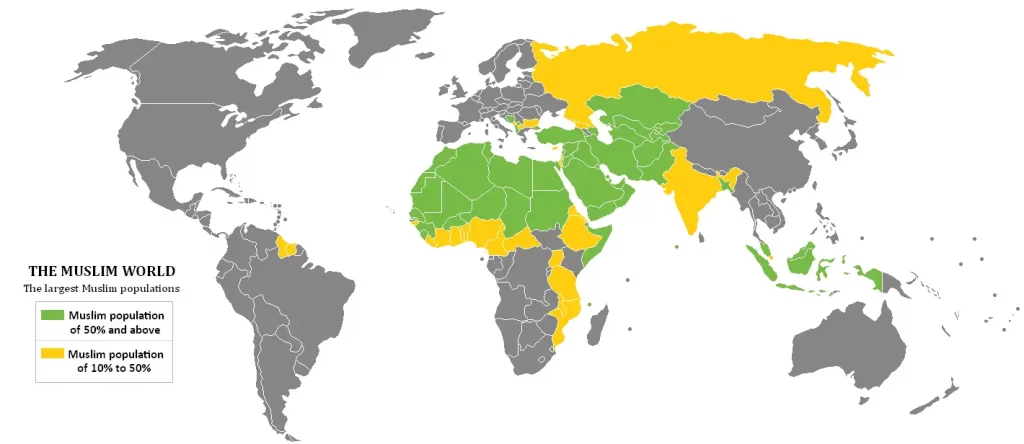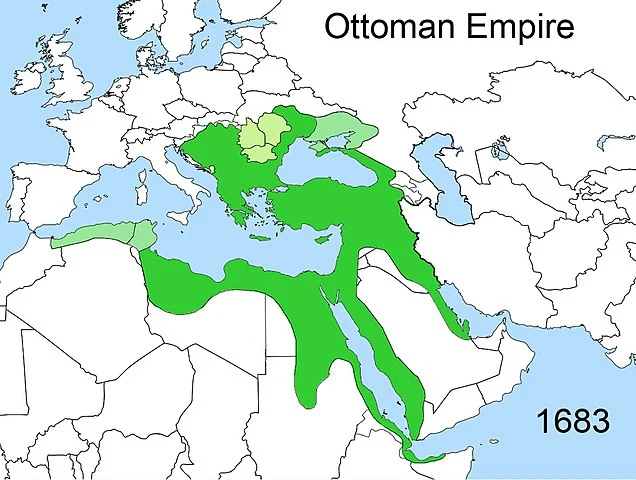(This article was written in English. Your browser might be translating it into your langauge. To read the original version, please select English.)
The Western Media Game: Why Muslim Unity is the Only Answer
The West’s Double Standards and Media Manipulation
For years & centuries, the Western world has used a strategy of diverting attention from its own transgressions by focusing on issues within other societies, especially those of the Muslim world. This approach, frequently seen in Western media, often highlights smaller issues in Muslim societies while downplaying the West’s colonial past, war crimes, and social corruption. Rather than confronting its own history and systemic issues, the West seeks to create a skewed “balance” by magnifying perceived faults in Muslim societies.
This double standard shows up as a habit of criticizimg only “the other side.” Small issues in Muslim societies get a lot of attention, while the West’s serious human rights problems are often ignored or softened. The reason fort his uneven focus seems to be the desire to keep up a positive image of the West. This creates a false image that keeps stereotypes about the Muslim world alive and discourages people from questioning what the West is doing.

In this article, we will lokk at how these double standards work, how the mesia manipulates information, and why it’s important for the Muslim world to unite in response to these tactics. Our goal isn’t just to raise awareness but also to stress the need for a fairer and more balanced global discussion.
Media in Shaping Global Perceptions of Justice
Western media doesn’t just report events; it actively shapes public perception, guiding audiences on how to interpret global issues. This bias becomes glaringly evident when it covers countries like Turkey. In Western narratives, Turkey’s influence in the Middle East and the broader Muslim world is frequently distorted. For example, Western media often frames Turkey’s humanitarian support for Palestine as “authoritarian” or labels it an “aggressive foreign policy.” Similarly, it describes Turkey’s anti-terror efforts as “hostile,” fostering an overall negative image.
Reccomended Article: A New Global Order Theory: What if Russians convert into Islam?
This manipulative approach in Western media doesn’t just affect Turkey; it also obscures the broader injustices committed against the entire Muslim world. Rather than focusing on Turkey’s humanitarian efforts, Western media exaggerates on minor issues. They are leading audiences to overlook the seriousness of major events and human rights abuses. By diluting the importance of significant global issues, the West reduces visibility and hides its own serious violations.
The Impact of Media Manipulation on Turkey and the Muslim World
To better understand the distortions caused by Western media’s manipulations towards Turkey and the Muslim world, let’s consider the following points:
- Double Standards in Criticism: The West criticizes Turkey’s legitimate defense policies. At the same time, it justifies its own military interventions as actions for “peace and security.” (Isn’t that just wonderful?)
- Perception Management: Western media often discredits Turkey’s humanitarian and diplomatic efforts. They frame Turkey’s actions negatively while promoting Western initiatives as “democracy” or “freedom.”
- Bias and Misinformation: Western media downplays the achievements of Muslim societies and exaggerates even their smallest flaws.
Here’s a revision that splits and shortens the sentences for better readability:
This manipulation allows the West to influence public opinion, diverting attention from its own wrongdoings. It also feeds biases against Muslim societies and developing nations. However, informed Muslim communities and global audiences can challenge these media tactics. By doing so, they contribute to a fairer world order and help these societies receive the respect they deserve.
False Equivalence
Why the Comparison Fails
Western media often tries to create a misleading “equivalence” by putting the West’s serious crimes and human rights abuses side by side with much smaller issues in the Muslim world. This tactic may look like a “fair comparison,” but it’s misleading and dangerous. The West’s history of war crimes, colonialism, and state-approved human rights violations are far more significant than individual or cultural issues within Muslim countries.
The core aim behind this strategy is to make the West’s major international crimes less visible and to sustain a certain image of the Muslim world. Through this tactic of misleading equivalence, Western media tries to convey the following impressions to its audience:

The core objective of this false equivalence is to make the West’s major transgressions appear insignificant, maintaining an agenda of misrepresentation towards the Muslim world.
By equating incomparable matters, Western media conveys the following perceptions to its audience:
- Hypocritical Criticisms: Western media minimizes criticism of crimes within its own society while amplifying minor faults and isolated incidents in the Muslim world. For example, Western military interventions and civilian casualties are downplayed, while individual events in Muslim countries are exaggerated. They even exaggerate incidents within their own societies to justify their increasing militarization, as if granting themselves a mandate. In doing so, they legitimize their own interventions while portraying the Muslim world as a security threat.
- Deflection of Issues: Western media highlights problems in the Muslim world to divert attention from its own transgressions. Just as seen recently with cases like the Epstein scandal. Media focuses on social issues in the Muslim world, which obscures the West’s own human rights abuses
- Unjust Comparisons: Western actions are shows as being as equal to the problems in Muslim societies, skewing moral judgemt and downplays the west’s serious crimes. This approach helps the West’s self-image of “superiority.”
Double Standards Againts Turkey
The West’s double standard is evident not only in its general criticism of the Muslim world but also in its stance toward Turkey. For example, Turkey’s anti-terror operations for its own security are often labeled “aggressive” by Western media. Meanwhile, similar military actions by Western countries are presented as efforts for “peace and security.” This inconsistency clearly shows how the West justifies its actions while applying a different standard to Turkey and other Muslim societies.
The Moral Dangers of Misleading Equivalence
This distorted balance prevents the establishment of global justice. By blurring the lines between major and minor offenses, the West’s crimes are covered up while issues in the Muslim world are exaggerated. In this way, the West’s global offenses are hidden, making it harder for the public to see the truth.
To better understand the negative effects of this misleading equivalence, we can consider the following points:
- Distortion of Moral Values: Misleading comparisons downplay the severity of major crimes and injustices. At the same time, they exaggerate minor issues, making them appear far more significant than they are.
- Abuse of Media’s Duty: Such manipulation violates the media’s core duty. Rather than informing the public, it misleads and hides the truth.
- Reinforcement of the West’s Superiority Complex: By exaggerating the minor problems within Muslim societies, this tactic reinforces the West’s sense of cultural superiority.
The strategy of misleading equivalence renders the West’s past and present crimes invisible to society. Being aware of such media manipulation is crucial for everyone who advocates for global justice. Achieving a genuine understanding of justice on a global level depends on correctly distinguishing between major and minor offenses.
Islamic Unity Against External Manipulation
The Western world’s drive to create rifts within Muslim societies only underscores the urgent need for unity. Through media manipulation and tactics of false equivalence, they aim to push us toward internal disputes, distracting us from the broader issues at hand. To counter this, building a culture of solidarity isn’t just beneficial; it’s essential. Unity is what will strengthen Muslim societies, allowing us to resist both internal pressures and external threats with resilience and purpose.
Reccomended Article: The Abolition of the Caliphate: A Missed Opportunity for Global Stability
Acting in unity enables the Muslim world to create a united front against external interference. In the face of negative Western propaganda and dismissive attitudes towards the Islamic world, unity allows Muslim nations to defend their interests from a stronger position. This solidarity should not only manifest in the political arena but also extend across economic, social, and cultural fields.
Strengthening Muslim Solidarity:
- Economic Cooperation: Increased trade and investment partnerships among Muslim nations would strengthen economic independence.
- Cultural and Educational Exchange Programs: Strengthening cultural understanding and building bonds among the younger generation is key to fostering unity within the Islamic world. By organizing international cultural and educational programs, it can help instil a shared awareness among Sunni Muslims (Ahl al-Sunnah wa’l-Jama’ah), emphasizing common values and reinforcing a sense of togetherness.
- Independent Media Platforms: Establishing independent media outlets would allow the Muslim world to counter Western media’s monopoly and present their own narratives.
These steps would enable Muslim societies to adopt a stronger and more influential stance on global issues. Unity and collaboration within the Muslim world are not only essential for Muslims but also contribute to a broader pursuit of global justice and peace.

Towards a Fair Global Narrative
The Western media’s double standards and strategies of false equivalence bring forth a pressing need for self-reflection within the Muslim world. Considering the colonial history and current policies of the West, it becomes clear that these strategies are primarily employed to protect their own image. Such manipulation does not just mislead Muslim societies but also poses a risk to any global community striving for justice.
Rather than remaining passive in the face of this distorted narrative, the Muslim world must both defend itself and initiate a global awareness movement. This awareness can be built upon Islam’s universal values of peace, justice, and human rights, reaching a wider audience. Creating independent platforms for the Muslim world to share its voice would enable societies to cultivate a more fair and informed worldview.
Moreover, Muslim societies should take a bolder stance on the global stage, responding to the West’s distorted rhetoric and aggressive policies with strength and unity. This approach not only strengthens solidarity and justice within Muslim communities but also fosters a global environment of resistance against unjust interventions. Yet for such a movement to succeed, mutual support and solidarity among Muslim nations are essential.
Is the Muslim World Ready to Stand United?
Last but not least… Establishing a fair global order is not only vital for the Muslim world but for all humanity. Standing up against the West’s manipulative narratives and defending the truth is not just a necessity for communities seeking justice. It’s also a universal responsibility. So, in this fight for global justice, is the Muslim world truly prepared to stand united?
Perhaps this is the ultimate, most important and the core question. We’ve discussed the West’s double standards and the reasons for unity among Muslims. What about the Muslims own internal gaps. Without addressing our own internal gaps, the Muslim world will struggle to mount an effective resistance against the Western world. Before taking on external challenges (jihad), a Muslim’s first and most important duty is to understand their faith (iman), religion (din) deeply and to live by its principles. Muslims should learn their religion from reliable “Ahl al-Sunnah wa’l-Jama’ah” scholars and their books. A person who gains its own beliefs knowledge and then acts upon it can attain true awareness.
Only after breaking free from the grip of Western hypocrisy and the chains of popular culture, then we speak of uniting for a global struggle for justice.
So, can we truly speak of unity in a global justice movement without first building this foundation? Perhaps the real question is this: is the Muslim world genuinely ready to stand together with one voice and one purpose in this struggle?
Author’s Reccomended Article: The Rich History and Tradition of Turkish Coffee













